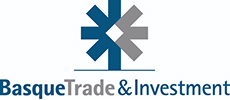Poland and Ukraine
The Basque Country has established a developing business relationship with Poland in recent years, driven by the mutual interest in strategic sectors such as the manufacturing and automotive industries, renewable energy and advanced technologies.
Poland has become a key partner for Basque companies due to its strategic location in Central Europe and its expanding economy. As regards Ukraine, the armed conflict has frozen Basque companies’ growing interest in that country, where the Basque Country has the possibility of working on the rebuilding of the country, particularly in infrastructures, energy and technology. The cultural proximity and the traditional ties of cooperation between Europe and those countries have facilitated a favourable climate to strengthen trade relations.
A favourable landscape for the commercial development of Basque companies
Poland is positioned as an attractive destination for the automotive and emerging technologies industries, with a government interested in attracting foreign capital. An economic impact is also expected once the payment of the EU subsidies is renewed, as they were frozen due to the actions of the previous government. In Ukraine, a slow recovery is expected up to pre-war levels, mainly underpinned by foreign investment in the country and the slow return of the country’s key industries; however, it will depend on how the conflict evolves and its ending.
Iwona Gieldowska
Director of Basque Trade & Investment Poland and Ukraine
BASQUE TRADE & INVESTMENT POLAND AND UKRAINE
* Office hours:
Monday to Thursday: 7.30 a.m. to 4.00 p.m.
Fridays: 8.00 a.m. to 1.00 p.m.
